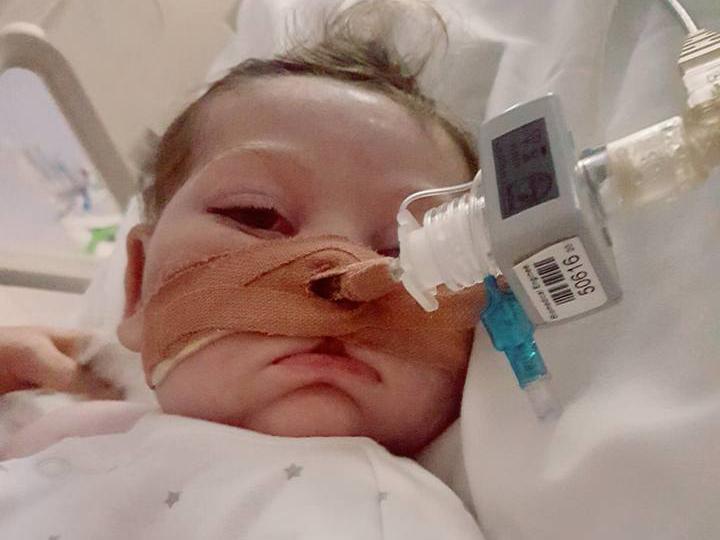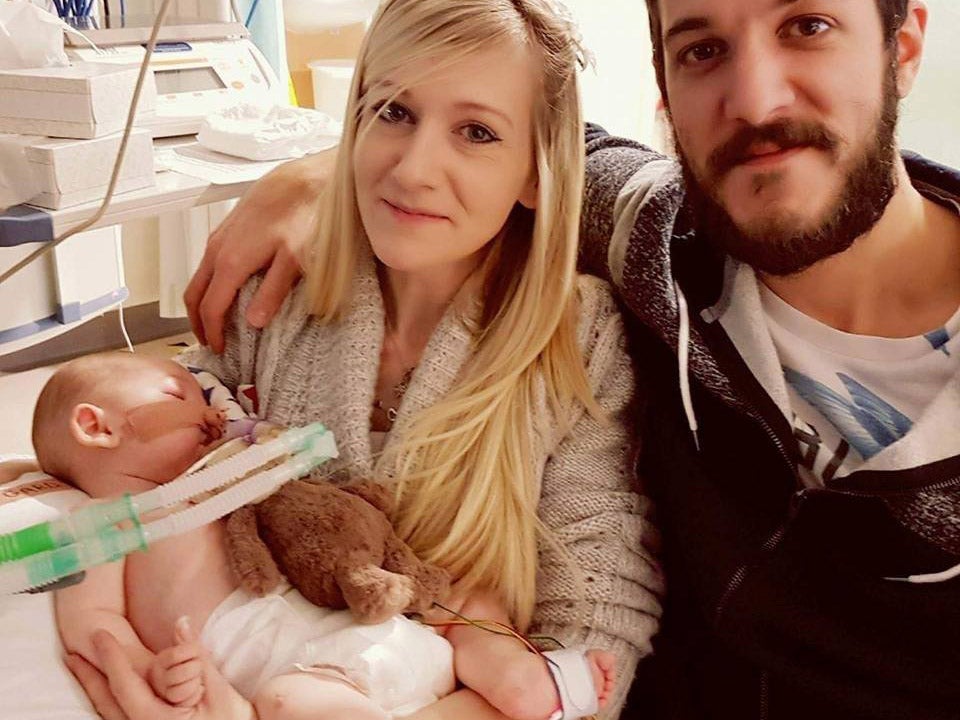Charlie Gard's parents share new photo of sick baby as European Court of Human Rights considers appeal
Great Ormond Street Hospital’s lawyers say case is 'particularly sad' but 'the parents don’t accept the facts'

Your support helps us to tell the story
From reproductive rights to climate change to Big Tech, The Independent is on the ground when the story is developing. Whether it's investigating the financials of Elon Musk's pro-Trump PAC or producing our latest documentary, 'The A Word', which shines a light on the American women fighting for reproductive rights, we know how important it is to parse out the facts from the messaging.
At such a critical moment in US history, we need reporters on the ground. Your donation allows us to keep sending journalists to speak to both sides of the story.
The Independent is trusted by Americans across the entire political spectrum. And unlike many other quality news outlets, we choose not to lock Americans out of our reporting and analysis with paywalls. We believe quality journalism should be available to everyone, paid for by those who can afford it.
Your support makes all the difference.The parents of Charlie Gard, a baby with a rare genetic condition, have shared an image of their son with his eyes open as the European Court of Human Rights considers whether his life support should be turned off.
Connie Yates and Chris Gard have brought their appeal to take baby Charlie to the US for experimental treatment to the international court after losing a Supreme Court battle.
Judges in Strasbourg ruled that treatment for the brain-damaged baby should continue until they give the verdict later today on the couple’s final legal challenge.
Charlie, who was born on 4 August 2016, has a form of mitochondrial disease, a condition that causes progressive muscle weakness.
Doctors at Great Ormond Street Hospital in London say the 10-month-old should move to an end-of-life care regime. A specialist told the High Court that Charlie’s condition had “deteriorated hugely” since he first came to the children’s hospital.
“The disease has affected his brain to the extent that he is completely ventilator-dependent,” said the doctor. “This situation is not a tolerable one to leave a child in.”

Hours before the final decision is made, Ms Yates shared an image of her son on Facebook with the caption: “A picture speaks a thousand words.”
“As quoted from the judgement… ‘he is not consistently able to open his eyes enough to be able to see. Indeed, this leads to the difficulty that his brain is failing to learn to see’,” she wrote.
Ms Yates and Mr Gard, who are in their 30s, also shared an image of the young family out on the roof of Great Ormond Street Hospital having a picnic.
The couple from Bedfont in west London disagree with the doctors’ assessment of Charlie’s condition and want to be allowed to take him to a hospital in the US where they hope he can be treated.
They have raised £1.3m through more than 83,000 donations by setting up a crowdfunding campaign to help take their son to the US.
Mr Gard said he believed a treatment trial proposed by US doctors could work, saying: “If there is no improvement we will let him go”.
The US doctor who would give Charlie experimental treatment has called the case “unchartered territory” and said the therapy would be “treatment but not a cure”.
“Charlie may be able to interact,” he said. “To smile. To look at objects.”
Ms Yates screamed and broke down in tears when the Supreme Court ruled Charlie’s life support should be switched off against his parents wishes. “How can they do this to us?” she told reporters outside the court. “They are lying. Why don’t they tell the truth?”
The head of Great Ormond Street’s legal team has called the case “particularly sad” but said: “Fundamentally the parents don’t accept the facts”.
Katie Gollop QC said Charlie could not see, hear, move, cry or swallow and it would be kinder to the baby for life-support treatment to stop.
Join our commenting forum
Join thought-provoking conversations, follow other Independent readers and see their replies
Comments